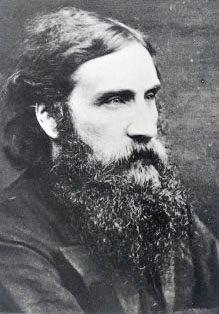Pitter patter, let's get at her.
I love pronunciation and I love hobbits.
Adrian Underhill is not a member of the Underhill family of hobbits, but his Phonemic Chart is a very useful, and enduring tool for learning sounds for anyone who has fossilized the phonemes (meaningful sounds) they hear. It is somewhat intimidating until you become familiar with it. (Macmillan has graciously put a lecture on youtube, which you can see here.)
It is:
-a map for your tongue.
-a means connecting voiced and unvoiced sounds
-a means of “seeing” sound
It is also possible to connect Language 1 sounds with English. As I am in a Castillian Spanish atmosphere, something that the Spanish have difficulty with at a phonetic level is vowels.
As a (mostly) phonetic language, they have 5 vowels that correlate like this:
a → æ ʌ ɑ:
i → i: ɪ
o → ɒ ɔ:
u → ʊ u:
e → e
They don't have weak form (schwa), so ə and ɜ: are totally foreign.
The quality of the vowels are different.
English goes louder: eeeee
Spanish goes softer: eeeee
Of course, phonetic symbols are frightening and confusing out of context, and our job is not to bring unnecessary complication into the classroom. So... how do we look at this effectively?
In walks Mr. Underhill's chart. Or at least part of it... the vowels.

here I put words, (training wheels, really) to contextualize the sounds. (I also mention that as a Canadian, I don't use a lot of /ɜ:/ )
I then teach the quick hacks, /i/, and /u/ (If I want to feel clever, I can mention that we use the Spanish sound /i/ at the end of words after L sounds, but I don't think it helps anyone. )
The hacks: (and convenient lies) for the Spanish: shorten the sound in /ɪ/ and /ʊ/, lengthen the sounds with colons (/i:/ and /u:/) , gesturing the time with hands. (or cigar boxes like in the video from my show at the end of the post.)
Then show the REAL sound by having them do a tongue slide from front /i:/ to /u:/ .
Tongue starts at front, slides back slowly, while lips go from "smiling" to "kissing". (you can probably ignore the lips, as they will naturally close as the tongue goes back if your students are thinking of their u sound.)
/e/ being the same, go on to /a/, which is a tongue slide from /æ/ → /ʌ/ → /ɑ:/ on the bottom of your mouth.
/o/ is going up and down from /ɒ/ and /ɔ:/
(Weak form is perhaps best seen on the Adrian Underhill video.) I have them make the sound that zombies make, (uhhhhhhh...) and change length. I point out that schwas are 30% of all vowels used, and that they are never stressed. Zombies don't yell.
Underhill points out that while many coursebooks teach one sound today, another tomorrow, it is when they are together that they all sort each other out. Have the class follow your finger around the chart while making the sounds... it is fun, and they can suddenly make precise sounds they may not be even able to hear yet.
If the phonemic chart doesn't interest you there is always phonetics through juggling like in my show, "Perception and Deception".
Un numero completo (teatro en inglés) www.fifthbiz.com
Cargado por mattledding. - Mira más vídeos divertidos.
